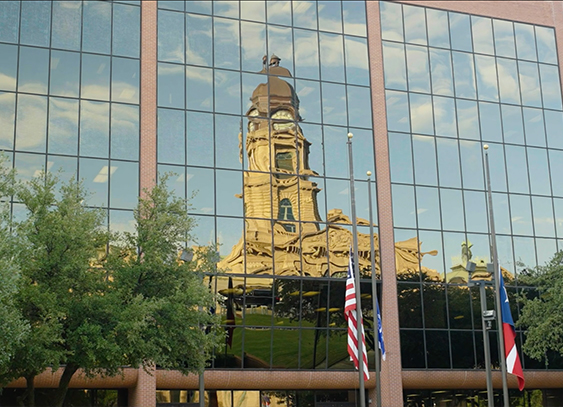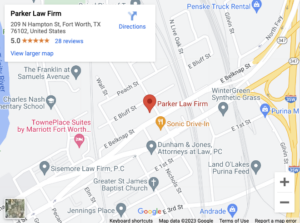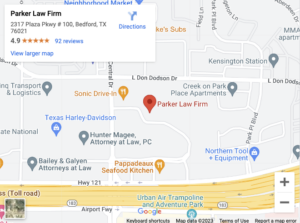
Direct evidence of negligence is hard to find in some personal injury cases. Texas law sometimes allows victims to rely on the legal doctrine of res ipsa loquitur in these situations. This allows judges and juries to infer negligence from the mere fact that an accident happened, even without direct evidence. Here is what you need to know.
What Is Res Ipsa Loquitur?

Res ipsa loquitur is a legal principle used in negligence cases. It is a Latin phrase meaning “the thing speaks for itself,” and may be used when the circumstances surrounding an accident suggest that someone’s negligence caused it, but there is no direct evidence. Instead of proving what went wrong, a victim must show that the type of accident does not ordinarily happen without negligence.
Texas courts recognize res ipsa loquitur under the Texas Rules of Evidence and case law. It allows a judge or jury to infer negligence based on the facts presented. This can prevent negligent parties from escaping responsibility simply because a victim cannot pinpoint what happened.
When Does Res Ipsa Loquitur Apply in Texas?
Texas only allows res ipsa loquitur in certain situations. It is used when the facts make it obvious that negligence is the most likely cause, but there is no direct proof.
You generally have to show:
- The accident is the kind that does not happen without someone being careless. For example, a surgical sponge is not left inside a patient unless someone made a mistake.
- The thing that caused the injury was completely under the defendant’s control. If several people could have been responsible, it’s harder to use this rule.
- You did not cause the accident yourself. If your own actions may have contributed, it weakens the claim.
A judge or jury can decide that negligence is the most likely explanation of an accident if these points are met. However, the other side can still argue that something else caused the accident or that they took reasonable care.
What Are Examples of Res Ipsa Loquitur in Texas?
Res ipsa loquitur has been successfully applied in Texas in situations where the facts strongly suggest negligence without direct proof. These are typically incidents where the injured person had no way to observe what happened, but the type of accident rarely occurs without someone’s carelessness.
Some examples include:
- Objects falling from a building onto a pedestrian when only the building owner or contractor had access to the area
- Anesthesia errors during surgery where the patient was unconscious and in the medical team’s exclusive control
- Public transportation mishaps, such as bus doors closing on passengers or elevators free-falling due to faulty maintenance performed solely by the property owner
- Restaurant incidents where glass or metal shards are found in prepared food when the kitchen staff had exclusive control over preparation
- Vehicle malfunctions, like a wheel detaching from a recently serviced car, where the repair shop had full control over the maintenance work
- Construction site accidents involving unsecured equipment or materials falling in areas where only the contractor had access
- Utility or infrastructure failures, such as a water main explosion in a section of pipe that only the city or utility company maintains
In each of these examples, the victim likely does not have proof of negligence. However, they may rely on the fact that the accident was so unusual to argue that negligence was the most likely explanation.
What Are Limits and Defenses to Res Ipsa Loquitur in Texas?
Even when the facts seem suspicious, res ipsa loquitur is not automatically granted. Anyone can challenge its use by showing that the accident could have happened without negligence or that multiple parties had control over the cause.
Common defenses include:
- Alternative explanations: Presenting evidence that a non-negligent cause was responsible for the injury.
- Shared control: Arguing that other parties besides the defendant had access to the instrumentality that caused harm.
- Victim’s contributory negligence: Showing that the victim’s actions contributed to the accident.
These defenses can weaken or eliminate a victim’s ability to rely on res ipsa loquitur, forcing them to present more direct evidence of negligence.
How a Texas Personal Injury Lawyer Can Help With a Res Ipsa Loquitur Case
Res ipsa loquitur has limitations, so it is important to work with an experienced Fort Worth personal injury lawyer if you believe that it may apply to your case.
A lawyer can help with:
- Identifying whether your accident meets the legal requirements.
- Gathering supporting evidence to strengthen the inference of negligence.
- Anticipating and countering a defendant’s likely defenses.
- Presenting the case persuasively to a jury.
With skilled legal guidance, you can maximize your chances of proving negligence under res ipsa loquitur and pursuing the full compensation you deserve.
Contact Parker Law Firm Injury Lawyers for a Free Consultation
If you believe your injury resulted from an accident that “speaks for itself,” consult with a knowledgeable Fort Worth personal injury lawyer at Parker Law Firm Injury Lawyers to determine whether res ipsa loquitur could strengthen your claim. Schedule a free consultation today.


